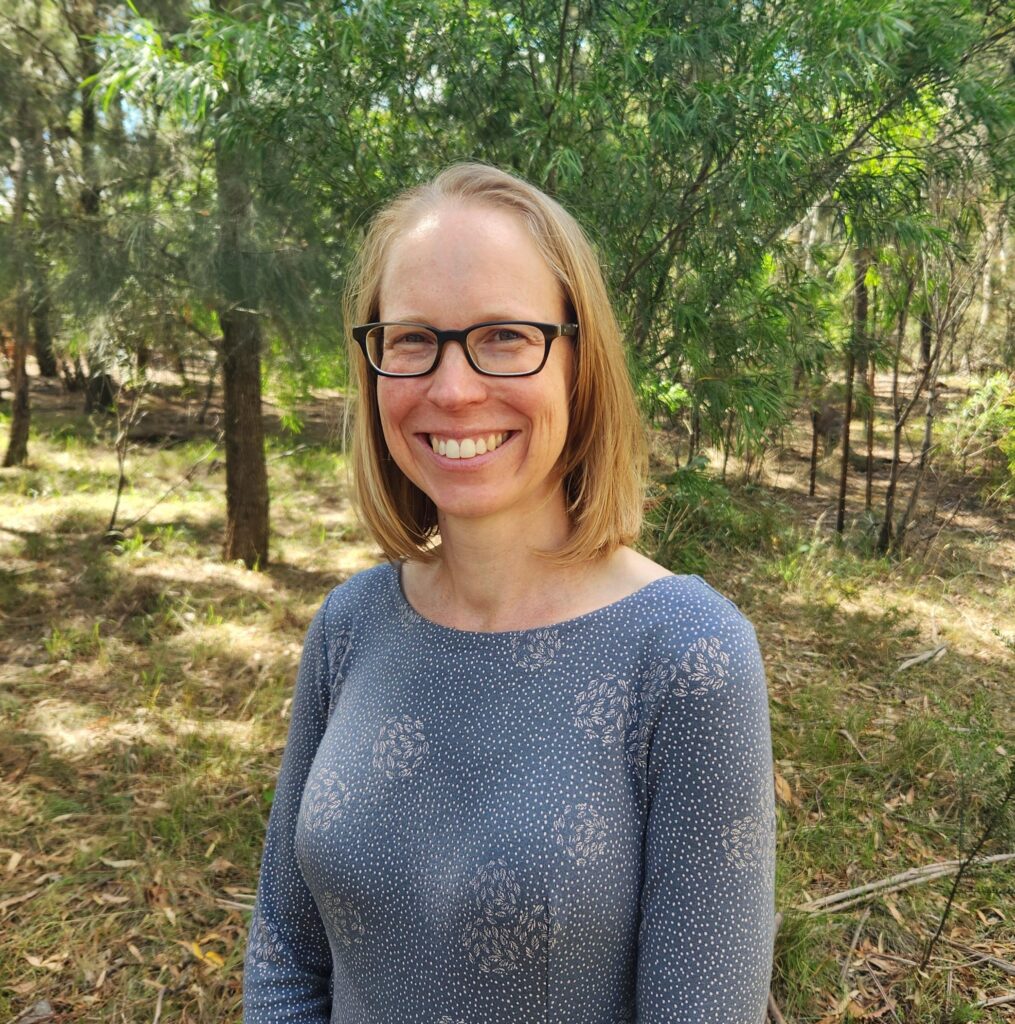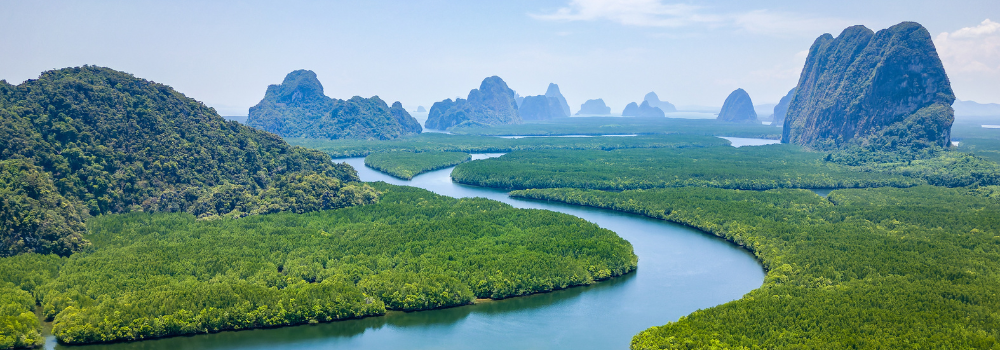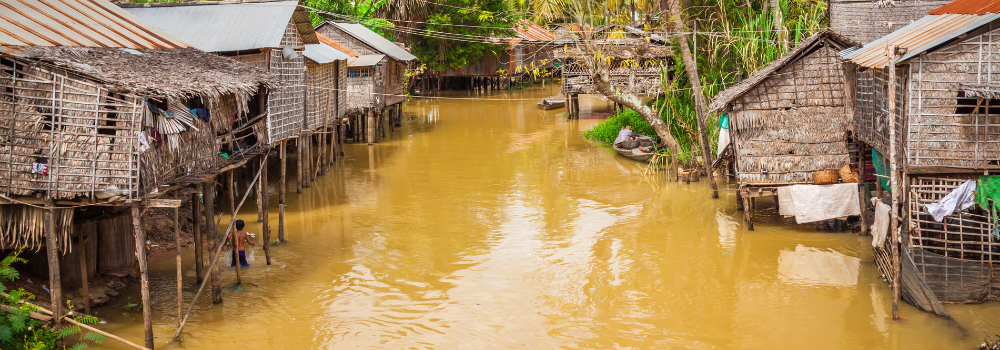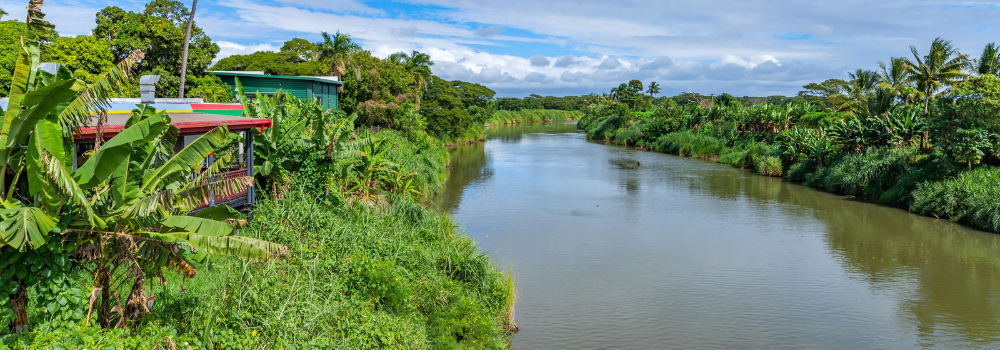Meet Dr. Emily Barbour, Australian Water Partnership
Meet Dr. Emily Barbour, Mekong Program Lead, Australian Water Partnership
The drive to find answers and new ways of working to solve complex environmental challenges has always been a key driver in Dr Emily Barbour’s career. Her curiosity and her openness to sharing her knowledge and expertise with all – her colleagues and our partners – has always been apparent, from the very beginning.

As the Australian Water Partnership’s Mekong Program Lead, Dr. Emily Barbour has been leading the way in delivering climate-resilient water policies, practices, and tools in the Mekong region since joining AWP and eWater in 2022.
Dr Barbour brings more than 15 years of prior experience working in the water sector within Australia and internationally. Her previous work as CSIRO Senior Research Scientist included co-leading the Commonwealth Environmental Water Office’s Basin-scale Monitoring and Evaluation program, which evaluates the ecological outcomes delivered by Australia’s investment in environmental water within the Murray-Darling Basin.
With a Doctor of Philosophy in Hydrology and Water Resources from the ANU, and Undergraduate degrees in Environmental Engineering and Science from the University of Newcastle, Emily has worked on water resource modelling projects in South Asia and the Pacific, chaired the CSIRO Land and Water Science Council, and taught at the University of Oxford’s within its Master of Science degree program in Water Science, Policy, and Management. She also undertook an undergraduate exchange program in Norway.
Well before she thought of joining the Australian Water Partnership, a division of the eWater Group, Emily had a strong connection to eWater as she deployed her professional expertise in water policy and scientific research with CSIRO. In her time there, Emily held a number of roles including a River System Modeller and worked on Australia’s sophisticated software-based National Hydrological Modelling Platform, eWater Source.
As Mekong Program Lead at AWP, her focus is on designing and delivering development cooperation activities on behalf of the Australian Government (through the Department of Foreign Affairs and Trade), and in partnership with international governments and institutions in the Mekong region. As part this key role, Emily is leading the way in knowledge exchange with governments which highly value Australia’s water management expertise – and our willingness to both share our experience and learn from others.
Emily has worked with our experienced AWP partners to deliver on the priorities of important partner governments in Vietnam, Thailand, Lao PDR, and Cambodia, through innovative programming, dialogue, training, deployment of tools and processes to support quality decision-making, and policy dialogue.

“I am always interested in pursuing and understanding the different perspectives of our partners and stakeholders from Australia and internationally; I believe that knowledge-building and capability development can only be successful if shared both ways.
“Through our partnership with DFAT, we have opportunities to observe and learn how our programs have impact, explore new ways to improve implementation, and identify how to respond to what we have learned in a meaningful way, which also enhances our effectiveness in the future.”
“I am interested in the interface between AWP and international governments, how they operate, how decisions are made, and what is useful [in terms of data and tools]. What we do feels like meaningful work to me and my team.”
“I am interested in how we can use data and technical tools to support higher quality, more evidence-based decision-making in water policy and management, and how this can improve the lives and opportunities of communities that rely on secure supplies of good quality water.”
Emily’s passion for water and the sector cannot be contested. Her commitment to finding solutions to working with water scarcity and promoting sustainability in water management in Australia, in the Mekong region and beyond is so clear when you hear her talk about her work.

For Emily, some of the biggest challenges facing the water sector is the need for a greater focus on working collaboratively to find practical and pragmatic solutions that can be realistically implemented, and which will be reliably maintained after the initial activity concludes. Infrastructure is only part of the solution to coping with the impacts of climate change. Often policy settings, community awareness and political will are far more important to achieving lasting success.
“Having a long-term plan is of course necessary, but also we need to consider the importance of meeting people wherever they are on their journey right now and hear their advice on how we might most usefully collaborate.”
“I believe that data and technology can be powerful when engaging with governments and institutions that demand results, but relationship-building with our partners and communities is even more important, because information-enabled solutions must be trusted and continually fine-tuned. There is such power in connection between people who are committed to learning together and trusting each other.”
